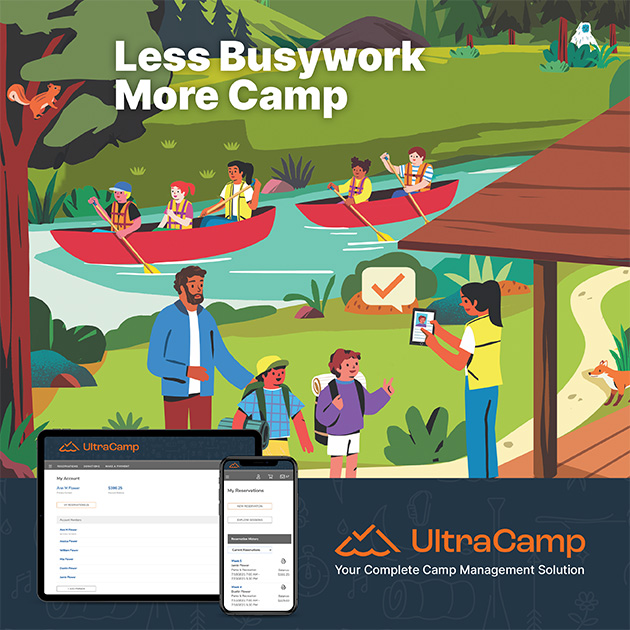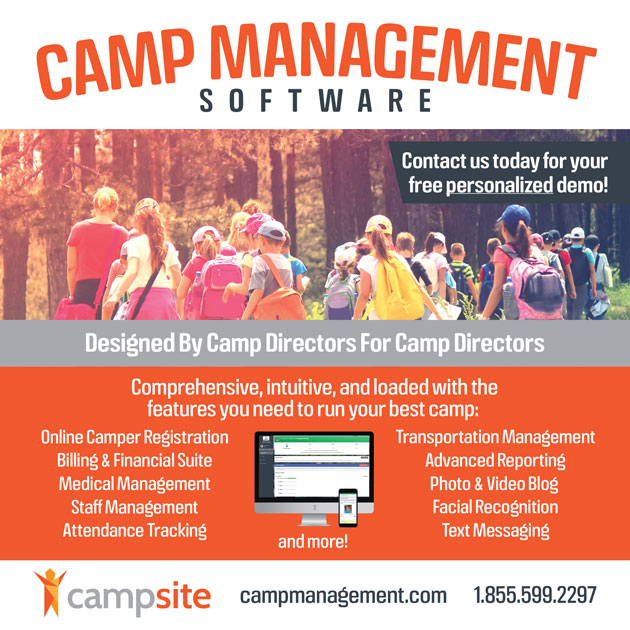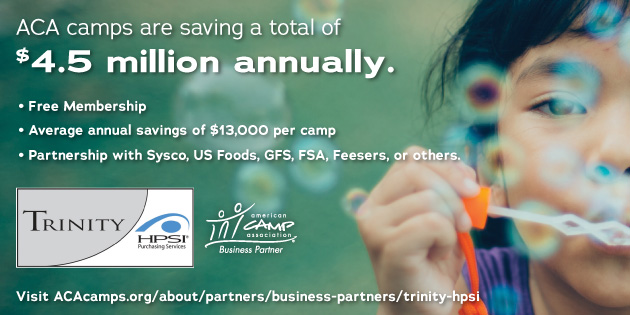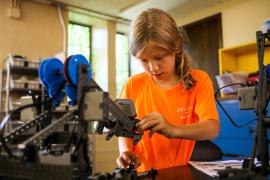It’s 9:00 p.m. on a busy camp evening, and it’s been one of those days. The stage lights in the theater blew a fuse, the scheduled mass email outlining Visitors’ Day logistics didn’t go out, and you had to send an unplanned communication to the parents of a specific bunk of seventh graders. Oh, and your operations director is out on leave.
For many of us, it’s a day at camp that might challenge our perceptions of how well we prepared for the summer and make us wonder whether any of those things could have been prevented. While we’re great at thinking through the details of programming, we may seldom think about or plan ahead for such operational issues. Perhaps one or more people on our team can rattle off database queries in their sleep and solve virtually any operations or logistics problems — but what if they aren’t available?
Are we training people to back us up in this area? At camp we focus a great deal of time and energy on training the next generation of unit heads, program directors, department directors, and frontline “camp people.” But what effort are we putting into training the next generation of operations managers?
Short of finding your very own Radar O’Reilly (a character on the sitcom M*A*S*H known for his ability to predict his commanding officer’s needs and fulfill them moments before being asked), what can you do today to set yourself — and your camp — up for success this summer?
Granted, camp staff are busy people, and the thought of spending time, energy, money, and focus in one more area of camp may seem overwhelming. However, investing in your operations and logistics is well worth the effort. Despite any upfront costs, such investments in operations and logistics will reduce the amount of time you’ll spend on tasks that can be outsourced or automated. In addition, the money you spend to fix problems early on will be less than if you wait until these problems become crises.
A seasoned operations staffer also saves money through institutional memory. They might know, for example, why the camp chose certain vendors because they’ve been around long enough to know which ones include complementary services (such as delivery). Smoother operations and logistics lead to better camper and staff experiences and help you not only retain those individuals, but attract new folks as well.
Non-fiscally speaking, the peace of mind that comes from creating processes and systems that make routine camp tasks more efficient cannot be emphasized enough. These structures reduce the stress leading up to and during camp season by enabling staff to understand what has been done, what needs to be done, and who needs to do what by when. Reducing potential stress is always a worthwhile expenditure in the summer budget. It can lead to a healthier leadership staff, which can lead to healthier frontline staff, which can lead to healthier campers who go on to create healthier communities.
Immediate Steps
By now, you may be looking at your countdown calendar to opening day and thinking it’s too late to do anything to improve your operations and logistics before the summer arrives. But there’s still time to consider ways to make your operations smoother now and steps you can take during the summer to make them easier in the future. For an immediate next step, start documenting what you do. Create to-do lists, put reminders for deadlines in your company calendar, and break down complicated tasks into minitasks. These practices will ensure you are more organized now and that you and those who come after you know exactly what needs to be done when.
Once into camp season, consider bringing in someone who can observe key camp functions and create a manual describing the process of accomplishing common duties, handling various situations, and shaping responsibilities during the season. This person should also document problems to be addressed before next summer (bonus points if they include ideas on how to solve those problems). This individual could be an alumni or volunteer who comes in for a few days during the season and who won’t get in the way of what’s happening at camp — someone with enough experience to know what questions to ask and when to just listen, observe, and take notes.
If no one is available to do that, try to build a little bit of time into your schedule several days a week to write down your observations about camp to reflect on later. You could do this using the Start, Stop, and Continue evaluation method. Or you might consider asking staff for specific feedback on operations and logistics during their exit interviews or debriefing meetings.
After the Season
Take some additional time to evaluate camp post-season, from both a program and operational perspective. This is another good opportunity to use the Start, Stop, and Continue evaluation method. (Or if you don’t like those categories, consider using Right, Wrong, and Missing, or create your own.) Think through the past season using any during-season notes you’ve collected. Was there a problem that could have been prevented or feedback from stakeholders about what could be better next season? Those items could fall under the Start category. Is there a process that isn’t producing the results you want or a system that isn’t meeting your needs? Those things could fall under the Stop category. Was there an idea you implemented mid-season that worked or new things you tried that made the season easier? Those things would fall under the Continue category.
From this process, select two or three of your most pressing issues and prioritize fixing them before next season. You can also use the items in all three categories to create your to-do list before each season.
Additionally, during the off-season it might be helpful to ask yourself, “What tasks or skills do I have that would be easier if someone else also knew how to do them? Make a list. Figure out who on your team can back up whom — and for continuity and equity’s sake, consider having all staff list their core tasks and assign a backup for each one. It may also be worth exploring what conferences or training sessions your team could attend in order to build necessary skills.
Specific tasks or skills for which you may want to make sure you have backup among your staff include:
- Running a customer relationship management (CRM) report or list based on more than one criterion (for example, campers from Arizona who are in seventh grade and enrolled before December 1)
- Enabling mass communication to the entire email list and segments
- Program “leveling” (sorting campers into activities based on a one to five ranked preference sheet)
Aside from staff at camp during the summer, consider who might be available in your year-round office who could aid in accomplishing an important operational task.
Keep in mind that redundancy can be critical in emergency situations. Having a board member or an off-site staff member trained in some of your basic tasks like mass communications or CRM reporting can be a huge time and stress saver in moments of crisis.
A question that is useful to ask is, “Can we pay someone else to do this?” What are simple yet time-intensive projects that you find yourself bogged down in? For example, could you pay a former staff member to help you book buses and confirm pickup times for transportation days or to return rented sound equipment instead of sending a vital staff member off site to do it?
Whether you are in the process of writing a full operations manual or taking incremental steps to improve your logistical capabilities, investing in people, systems, and the future always pays off. With some good organization, your entire camp team can become your very own Radar O’Reilly.
Photo courtesy of URJ Crane Lake Camp, West Stockbridge, MA
Abigail Stuart is the director of operations at Doxazo Ministries, and the best part of her job is directing Doxazo Camp every summer. Abigail has directed a variety of youth development programs for Doxazo Ministries since 2017, including STEAM programs, mentorship programs, and day camps. Her favorite part of working with youth is facilitating fun environments for students and staff to build healthy relationships and grow personally.
Ari Polsky is an incoming program manager at JCamp 180 and has been working in summer camps for 16 years. Most recently he served on the community care team at Camp Tel Noar and was the communications director at two Ramah camps. He is passionate about camp photography, data analysis, marketing, fundraising, emergency planning, and equitable and ethical workplace practices.







